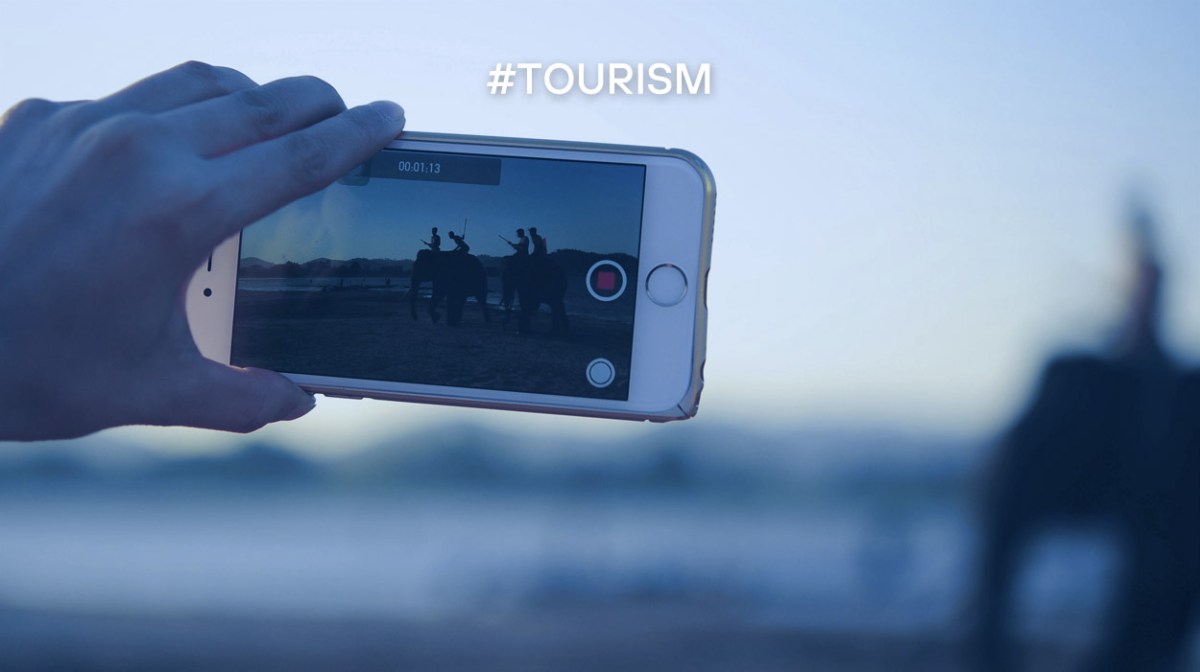What is the relationship between tourism and new technologies?
The tourism sector has always been highly dependent on human resources. The arrival of new technologies has brought about changes at the level of travellers, destinations and tourism companies.
On the one hand, the fact that today’s society has such a strong connection to technology has meant that travellers need constant improvements and transformations in their travel experience (before, during and after the trip to generate a wow effect). At the same time, new technologies have enabled destinations and the companies that implement them to be more competitive, sustainable and efficient.
What are the benefits?
There are several benefits, but to summarise, I would highlight the improvement of the traveller’s experience through personalisation and accessibility. Greater competitiveness and efficiency for companies in the sector, enabling them to optimise operations and reduce costs through process automation. Increased sales and revenue due to the ability to attract new tourist profiles through innovative digital experiences. And finally, improved sustainability through consumption control and resource management.
How has this sector evolved in recent years thanks to technological advances?
Despite the impact of the pandemic, with a 75% decrease in international tourism revenue compared to the year before the pandemic, the trend from 2022 to date has been double-digit growth year on year, reaching, for example, 12.3% of GDP in Spain in 2024.
In my view, this growth in revenue has been partly due to the sector’s ability to adapt to the digital demands of travellers and companies adopting technology to improve their efficiency.
Where might it be heading in the medium/long term?
We are certainly moving towards hyper-personalisation of customers through the intensive use of AI and Big Data. In addition, everything will become increasingly automated. I am convinced that the advances made in recent years in airports, for example in contactless services, will be implemented in the rest of the sector.
Another emerging technology that has not yet had a major impact on the sector to date, but which I believe could be disruptive in the future, is blockchain and digital sovereignty.
For years, there has been the Alastria programme, for example, which includes a collaborative, multi-sector project aimed at providing a decentralised identity service that gives users complete control over their personal data in a secure and reliable environment. This would allow, for example, a tourist to access airline check-in, hotel check-in and car rental by uploading their basic identification details (name, surname, ID number, etc.) to this platform just once. Without having to show all their documentation every time.
Finally, I would like to emphasise that as technological exposure increases, cybersecurity will become more important, ensuring the digital identity of travellers, protecting their data and preventing possible reputational damage to companies in the tourism sector.
What specific examples are there?
There are several examples in the sector, but if I had to highlight one, it would be the demand prediction project using Artificial Intelligence (AI) implemented by the Piñero Group, which has enabled them to improve the accuracy of their predictions by 3% per day, resulting in a cumulative improvement of £14 million per year.
Another interesting project, closely related to sustainability and cost optimisation, has been the implementation of an AI-based virtual operator at Iberostar Hotels, designed to achieve more efficient energy consumption management in its hotels. Its goal is to achieve 35% energy savings and an 85% reduction in emissions.
Also at Iberostar, Telefónica, in collaboration with Google, implemented a convenient and effective solution to guide guests within the resorts. This is clearly an example of improving the customer experience through the use of technology.
Finally, and without going into too much detail, last year NH, in collaboration with Amazon, implemented Alexa in the rooms of some of its hotels. The aim of the project was to ‘emulate the experience that customers already have at home and integrate Alexa into the hotel, with all the services at their disposal’. The ultimate goal is to be able to manage all the home automation elements in the room by voice: lights, temperature, hot water, etc. This is another clear example of how, on the one hand, you improve the customer experience and, on the other, you increase revenue through cross-selling and process improvements by the hotel company.
In particular, what role is AI playing in the evolution of tourism?
Due to the hyper-competitiveness that exists in the tourism sector, it is clear that those companies that do not leverage the benefits of AI may suffer in the future.
In summary, AI is transforming tourism by offering a hyper-personalised experience, high availability of information with 24/7 customer service through, for example, virtual assistants who are in contact centres in multiple languages.
It allows companies and destinations to optimise operations, anticipate demand, and manage prices in real time. It also enables intelligent marketing and more agile processes for reservations, check-in/check-out, and incident management.
Finally, let us not forget the impact of AI on sustainability and the intelligent management of tourist flows at destinations. Remember that the future of tourism will be sustainable or it will not be at all.







